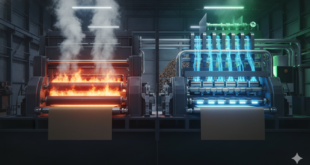The U.S. Department of Defense (DoD) faces a strategic vulnerability that runs deep through its logistics systems—petrochemicals. These petroleum-derived carbon molecules underpin nearly every facet of military operations, from jet fuel and explosives to life-saving medicines, textiles, and polymers used in protective gear. Yet, more than 80% of these crucial materials are tethered to sprawling, fragile global supply chains that cross volatile geopolitical landscapes. A single disruption—be it natural disaster, cyberattack, or military conflict—could cripple forward operating bases, disrupt carrier group deployments, and erode readiness. In response, DARPA has launched SWITCH, a visionary program that aims to redefine the industrial playbook by transforming microbes into programmable factories capable of producing mission-critical materials on-demand, from virtually any feedstock.
The Fragility of Fossil Fuels: A National Security Crisis
Modern military capability is inseparable from its reliance on petroleum. Whether it’s the synthetic fibers in soldier uniforms, polymers in drones and vehicles, or the chemical precursors used in essential medications, fossil fuels are foundational to mission success. However, this dependence brings cascading risks. Key petrochemicals must often pass through maritime chokepoints vulnerable to sabotage or geopolitical instability. Traditional industrial infrastructure, such as refineries or chemical plants, lacks the agility to quickly shift production lines in response to emerging needs. Compounding these risks is the environmental toll—DoD operations account for approximately 1% of U.S. carbon emissions. Events like Hurricane Maria’s disruption of Puerto Rico’s pharmaceutical sector in 2017 revealed how centralization can lead to critical shortages when disaster strikes. DARPA’s SWITCH initiative addresses these challenges by repurposing nature’s original chemists—microorganisms—as agile, resilient, and localized production systems.
Biology as Operating System: The SWITCH Paradigm
Most existing bio-manufacturing platforms are designed for maximum yield of a single product. Whether it’s yeast producing ethanol or bacteria synthesizing insulin, the underlying systems are inflexible, monolithic, and slow to adapt. SWITCH upends this paradigm by enabling what DARPA calls “run-time reprogrammability.” Imagine bacteria capable of shifting between synthesizing medical-grade antibiotics and jet fuel, based not on laboratory re-engineering, but on software-driven instructions and available raw materials. This approach mirrors developmental biology, where embryonic cells differentiate into organs based on local signals and systemic needs. According to Dr. Matthew Pava, SWITCH Program Manager, “We’re encoding microbial genomes with decision trees that sense resource availability and demand signals, enabling autonomous switching between products without halting production.” In essence, DARPA is equipping living systems with the autonomy and intelligence of an industrial control network.
Engineering Unhackable Supply Chains: The Four Pillars of SWITCH
From Lab to Warfighter: The SWITCH Development Pipeline
The SWITCH program unfolds across a three-year timeline, beginning with an intensive techno-economic analysis phase. Here, teams will assess whether bio-based alternatives can meet or undercut petrochemical costs for explosives, fuels, or pharmaceuticals—without sacrificing performance or purity. By the end of the program, DARPA expects working prototypes capable of seamlessly switching between at least three product types using at least two feedstocks. These prototypes must function continuously and autonomously, adjusting outputs in response to operational signals such as real-time demand or shifts in available resources. Just as critical is the development of a commercialization plan to bridge the so-called “valley of death”—the often-fatal gap between DARPA-backed R&D and scalable industry deployment.
Challenges on the Horizon: Stability, Intelligence, and Security
Civilian Applications: A New Frontier in Distributed Manufacturing
“SWITCH isn’t about making biology imitate factories. It’s about making factories imitate biology—adaptive, resilient, and endlessly renewable.”
— Dr. Matthew Pava, DARPA SWITCH Program Manager
Read the official solicitation and proposal instructions at DARPA’s SWITCH Program Portal.
 International Defense Security & Technology Your trusted Source for News, Research and Analysis
International Defense Security & Technology Your trusted Source for News, Research and Analysis


